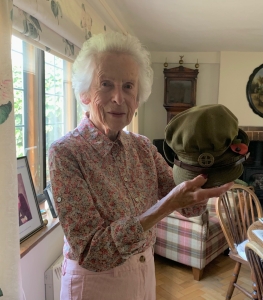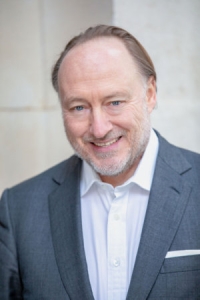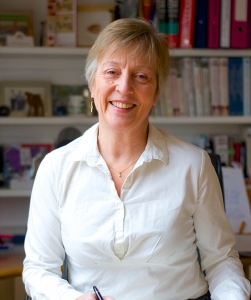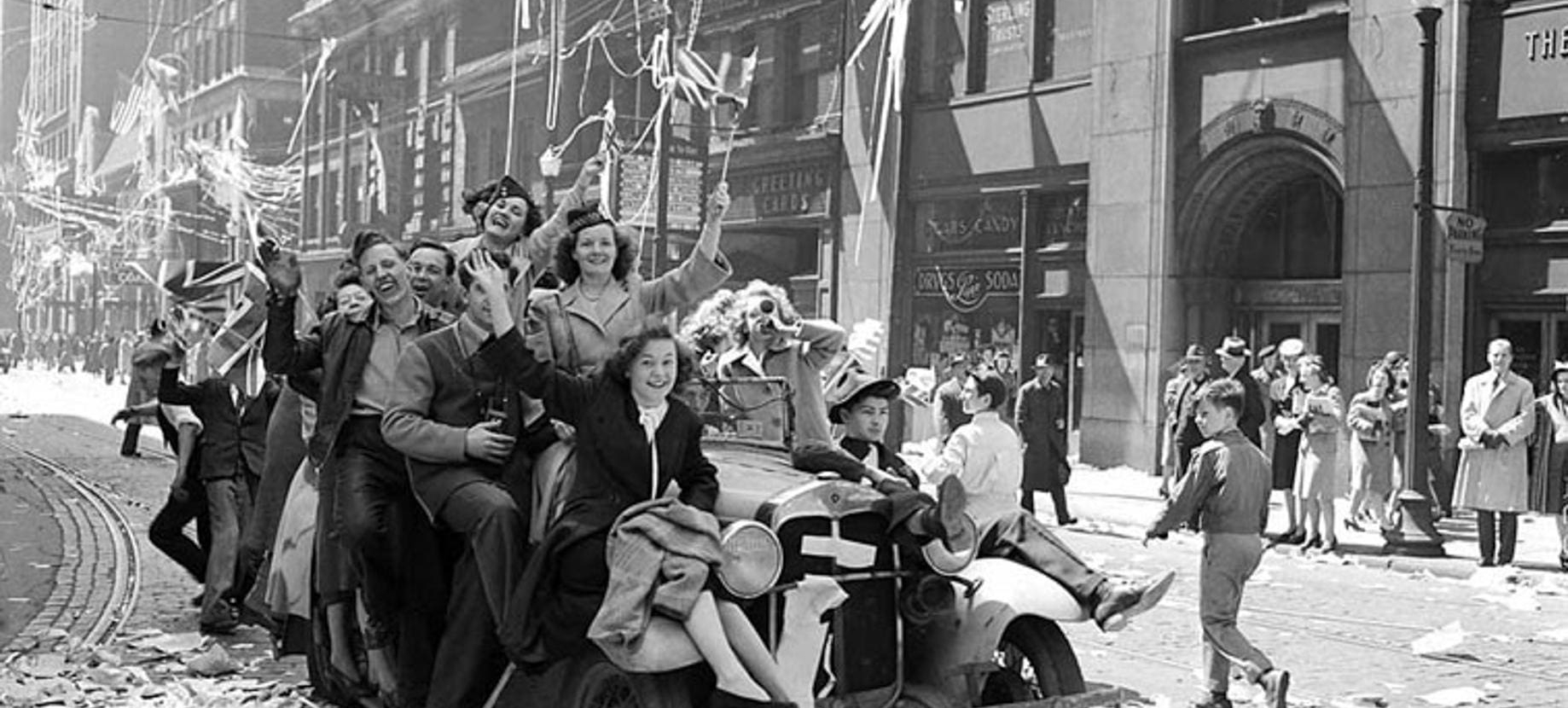“The first thing we did was to get into Piccadilly and we joined a crocodile that was doing the hokey-cokey or the pally glide down Piccadilly. Everyone was just singing, cheering. I remember masses of American soldiers climbing up lampposts. It was chaos, really, but joyous chaos.”
Sharing her memories of the Victory in Europe (VE) Day celebrations, is veteran Joyce Wilding, a guest on Voices of Victory, the Army Benevolent Fund’s special podcast to mark the 80th anniversary of this incredible occasion.

During the Second World War, Joyce, now 100, but 20 on 8th May 1945, had volunteered to join the First Aid Nursing Yeomanry (FANY), and then became a member of Special Ooerations Executive – the secret organisation carrying out sabotage in occupied territories.
The War would continue in the East until August 1945, but there was widespread relief that the fighting in Europe, which had cost thousands of lives, was over.
Colin Thackery (95) is a Pensioner at the Royal Hospital, Chelsea, an ABF partner charity. He recalls his childhood during the Blitz in London.
Colin, who later saw active service in the Korean War, says: “We had an indoors Morrison shelter – like a huge, flat, steel table – and we slept under there. It became a sort of norm, going to school on the morning after a raid, and seeing what had happened. It was a great relief to think that we didn’t have to dodge bombs anymore, it was wonderful.”
A singer since childhood, Colin went on to win TV’s Britain’s Got Talent in 2019 and will perform as part of the 80th anniversary celebrations on 8th May 2025.
Podcast host, Harry Bucknall is also joined by eminent historians and authors, Lord Andrew Roberts, and Julie Summers, to discuss the impact of the Second World War on ordinary men and women, and on the political and economic state of Britain.
Andrew Roberts describes the issues facing Churchill, the then Prime Minister, including the continuing war in the East and a refugee crisis in Europe: “It’s a series of headaches, which is why on the 8th of May 1945, he spent the entire morning in bed, working.”

Historian Julie Summers tells Harry about the practical challenges of demobilising nearly 4 million men efficiently and the sense of uncertainty awaiting them.
“Men came home to find that their wives, mothers, sisters, daughters, sons, fathers had, at times, had a very devastating experience. Children had been evacuated. Women had had to work. A lot of homes had been destroyed. The post office recorded 42 million changes of address during the six years of the War – more changes of address than there were households in the UK in 1940.”
It was to provide help for returning service personnel and their families that the Army Benevolent Fund was established by the government in 1944.
Then as now, the ABF was at the forefront of support for soldiers, veterans and their families. Between 1944 and 1946, the charity gave out £0.5 million in grants – the equivalent of around £28 million pounds today.
Julie adds: “People like the Army Benevolent Fund and the Royal British Legion had to step in when it wasn’t possible for people to make their own way, because there simply weren’t the jobs, the infrastructure, the housing, or the knowledge, after years of war planning, of how to run a civil society. “

Both historians reflect on the significance of VE Day today. Andrew Roberts says: “80 years on…it strikes me that VE Day is genuinely just as relevant as it’s ever been, and I would argue, much more relevant than it’s been for many years.”
Thank you to all our guests who joined Harry to salute the brave veterans of the Second World War generation and pay tribute to their service.

